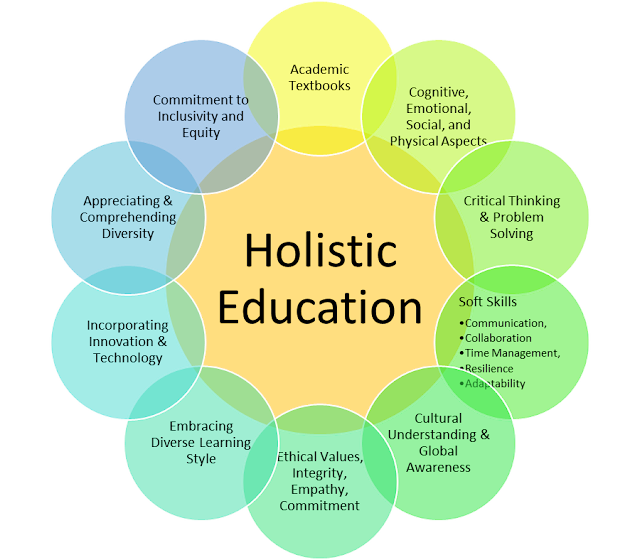"What should be the characteristics of a good
citizen?" I very often talk to myself. It's a query that lingers in the
corridors of my mind, prompting me to reflect on the pivotal role I play in
shaping the future of my students.
In the midst of my thoughtful journey, I engage in a
dialogue with my common sense, questioning whether the essence of quality
education merely resides in the realm of academic knowledge. Swiftly, my common
sense dismisses this notion, propelling me toward a more profound
understanding. "Quality education must transcend the boundary of textbooks
and examinations; it must ensure holistic development," it asserts. What
prompts certain guardians to find joy in their children's academic
achievements? Shouldn't they also consider the essential qualities they need to
foster for their children's overall education? However, I've encountered some guardians
who derive satisfaction not solely from their children's academic
accomplishments but consistently prioritize fostering the essential qualities
necessary for their children's holistic education.
"My exploration for the essence of best education leads me through various avenues," I declare. The culmination of this quest unveils a multifaceted approach. "A holistic education, I realize, encompasses cognitive, emotional, social, and physical aspects, endeavoring to shape well-rounded individuals capable of navigating the complexities of life." How often do parents and many educational institutions genuinely consider the emotional and physical well-being of our children? It seems that the focus is primarily on obtaining good grades, often overlooking the method of achieving those grades, even if it involves mere memorization. The concerning aspect is the lack of realization that this approach may kill the creativity of our children.
"Critical thinking and problem-solving," I
emphasize, "emerge as indispensable pillars in this educational
framework." I recognize that empowering students with the ability to
analyze information and adapt to an ever-changing world is not just beneficial
but fundamental to their overall learning experience.
However, the journey doesn't end within the boundaries of
academia. "The best education extends its reach into the realm of
practical life skills," I affirm. It imparts lessons in communication,
collaboration, time management, and resilience – skills that prove
indispensable in diverse facets of life beyond the classroom. Our updated
curriculum prioritizes hands-on learning, encouraging students to learn by
actively doing. Progress towards qualifications will be achieved through
practical, experience-based learning. Throughout this hands-on experience,
teachers will assess students based on their proficiency, collecting valuable
evaluation data.
"Cultural understanding and global awareness become key
objectives," I assert. A quality education system should not only foster
an appreciation for diversity but also equip individuals with the capacity to
comprehend different perspectives and navigate an interconnected world.
"Aren’t Creativity and innovation the essential
elements of the best education?" I understand how critical it is to create
an environment where students are inspired to learn, feel free to follow their
interests, and go beyond social standards.
"Ethical values, including integrity, empathy, and a
commitment to societal contributions," according to me, "take center
stage in my educational philosophy." I recognize that instilling these
values through education is instrumental in shaping responsible individuals
with a strong moral compass.
"In the face of a rapidly changing world," I
acknowledge, "the best education must prepare individuals to adapt to new
challenges." It instills a commitment to lifelong learning and personal
development, recognizing that the journey of education doesn't conclude with a
diploma but continues throughout life.
"A commitment to inclusivity and equity becomes a
cornerstone," I passionately state. A quality education system ensures
universal access to learning opportunities, irrespective of background or
ability. It actively works to reduce educational disparities, fostering an
environment where every individual can thrive.
"Effective teaching methods," I highlight,
"embracing diverse learning styles and incorporating innovation and
technology, become essential components of the best education." It's a
dynamic process that evolves with the needs of the learners.
"Ultimately," I conclude, "the best education
is a transformative force." It gives people the attitudes, abilities, and
information necessary to be successful in their chosen fields. It creates a
strong sense of readiness for the future and a dedication to contributing
significantly to society. This soliloquy becomes my beacon of light as a
teacher, motivating me to aim for nothing less than the best for my pupils and,
consequently, for the world they will create.
Find us on Google News and Pinterest
Unveiling the Hurdles in Implementing the New Curriculum
An In-Depth Guideline of Bangladesh' New Curriculum
A Self-Reflective Guide for Your Child Education
New Curriculum VS old Curriculum


